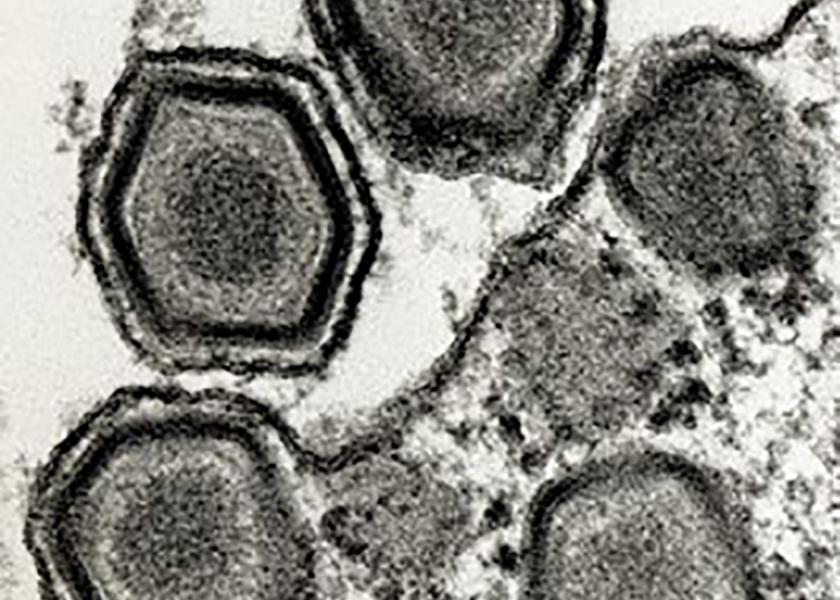Researchers Confirm There Are Only Six Unique Strains of African Swine Fever Virus

Although experts previously identified 25 different African swine fever (ASF) virus genotypes, USDA Agricultural Research Service (ARS) researchers announced they have reclassified the number of virus strains from 25 to only six unique genotypes.
This scientific innovation may help redefine how ASF researchers across the globe classify ASF virus (ASFV) isolates and may make it easier for scientists to develop vaccines that match the different strains circulating in ASF endemic areas across the globe, ARS said in a release on Nov. 13.
"Our research team recently re-evaluated all the publicly available virus DNA sequence and found that the majority of genotypes (genetic makeup) originally identified as novel were not correctly identified nor compared to already existing ASFV virus genotypes," said senior ARS scientist Douglas Gladue. "Based on this analysis, there are actually fewer unique genotypes than the ASF research community believed, and that means that there is less diversity of ASFV affecting communities across the globe. This information is important as it may reduce the number of vaccines previously thought to be needed to protect against all ASFV genotypes."
Accurate classification of viruses is key for epidemiological investigations, ARS pointed out, and the development of cost-effective countermeasures, including developing vaccines for unique strains of ASFV.
Researchers re-analyzed more than 12,000 historical and current virus isolates that were produced from ASFV labs worldwide. The effort was made possible using the computing power of SciNet, ARS’ super computer cluster for solving agricultural big data problems.
The highly contagious ASFV spread from Africa to the Republic of Georgia in 2007, and has since swept through Europe, the Dominican Republic and Asia, before reaching South Africa in early 2023. Although ASFV is causing profound economic losses to the global swine industry, there have not been any outbreaks in the U.S. to date. The virus is unable to transmit from pigs to humans so it poses no food safety or human health risks.
Editor's Note: This research is highlighted in this month’s issue of Viruses and includes research and development input from the National Bio and Agro-Defense Facility, the Canadian Food and Inspection Agency, and Makerere University in Uganda.







